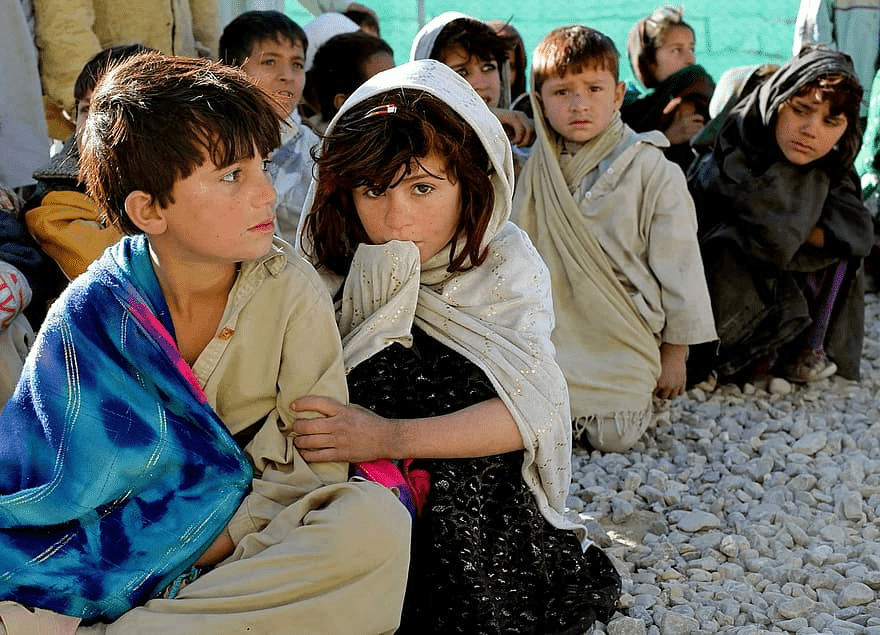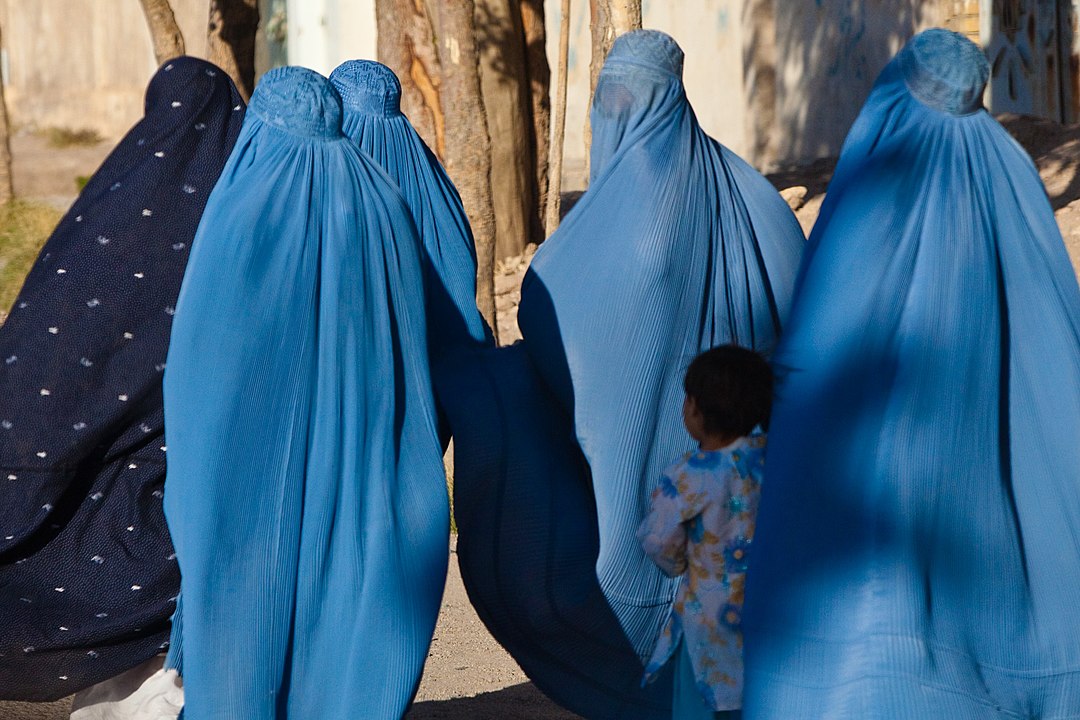The Looming Afghan Famine

By Harry Clynch
Staff Writer
22/6/2022

Children in Afghanistan
Last month, Noorullah Mamozai was walking through the busy Dehmazang Square in Kabul. He noticed that a crowd had gathered, and there were murmurs that a local had been seriously injured. Noorullah started to make enquiries and was told by an official that there had been a bombing, but he was unconvinced. He had been in the area for hours and had heard no loud explosions. Eventually, he found out what had actually happened. A man had set himself on fire in front of dozens of onlookers, and his young children. Soon afterwards, videos began to circulate on social media confirming this was indeed the case.
One of the children came up to Noorullah and explained why his father had done this. It was the ultimate act of desperation. The man had recently lost his job, had run out of cash, and could no longer afford to feed his family. The self-immolation was a last-ditch cry for help. It was also, surely, a deliberate echo of the Arab Spring, which was triggered when a desperate fruit seller in Tunisia set himself on fire. There are certainly plenty of Afghans who’ve been driven to such levels of desperation. With the collapse of Afghanistan’s economy, millions are teetering on the edge of starvation. The country is facing an unprecedented economic and humanitarian crisis.
The Afghan economy was already extremely frail before the Taliban’s return. Decades of war has left it Asia’s poorest country. A two-year drought has damaged crop yields, leading to price spikes and widespread food insecurity. With shaky political and economic institutions, Afghanistan was more exposed than most to COVID-induced shocks. Despite Western attempts to liberalize the economy, Afghanistan has never had a sophisticated financial system. Before the Taliban takeover, foreign doners, including the US Agency for International Development, funded as much as 80% of the country’s budget expenditure.
Now, that has dried up. Immediately after the takeover, foreign organizations halted aid. The European Union suspended long-term development funding. The International Monetary Fund (IMF) paused over $400 million in funding, and blocked the Taliban government from accessing any of the IMF’s resources. The World Bank stopped all funding to Afghanistan.
Shortly afterwards, the US also moved to freeze the assets of the Afghan Central Bank, which are held in New York. While earmarking half of Afghanistan’s $7 billion in assets for humanitarian purposes, US President Joe Biden announced the other half is to be seized and disbursed to the families of 9/11 victims. As a result, the Taliban’s ability to access cash has been severely limited. It’s struggling to pay public sector workers their wages, or prevent public services from collapsing, while most of those with bureaucratic expertise have fled the country.
Though the US and its allies understandably justify this as necessary to prevent Western funds falling into the hands of malicious actors, this has undoubtedly contributed to the economic crisis. The IMF warned that the economy could shrink by 30% after the takeover, while the United Nations Development Programme (UNDP) sees annual per capita income also dropping by 30%. This would mean the majority of Afghans would need to survive on just $350 a year – less than a dollar a day. With unemployment rising and prices of essential goods increasing, partly because the war in Ukraine is pushing up prices of wheat and other grains, the World Food Programme (WFP) now believes that 98% of the population doesn’t have enough to eat. At least 25% of the population is approaching famine levels of food insecurity.
At least 25% of the population is approaching famine levels of food insecurity.
On the ground, many are being forced to borrow money to put food on the table. Ajmal Paiman was a construction worker in Jalalabad before the Taliban came to power. But because these public works were funded by foreign aid, the Taliban doesn’t have the money to pay workers or purchase the materials. “All the works have been stopped,” Ajmal said. “For that reason, I became jobless and now I have to borrow money from friends.”
Others who are lucky enough to have some savings are running out of them. Noorullah lost his job as a manager at a construction site because he’d previously engaged with American forces – despite the Taliban announcing a “general amnesty” for former government officials and those who had worked with the US-backed administration. He managed to sell his car for a few hundred dollars, and survived on that for over six months until an Afghan friend based in Britain managed to secure him work elsewhere in Afghanistan. He recognizes that the vast majority of his countrymen wouldn’t have been so fortunate.
Ajmal is increasingly concerned that he won’t be able to feed his family. He said that prices for essential goods are increasing “by about 50% because of the war in Ukraine and severe drought in Afghanistan.” Their situation is exacerbated by the fact that his wife is no longer able to work. In many areas, the Taliban is preventing women from appearing in public without their mahram, a male guardian, and has cracked down on female employment. For Ajmal’s family and many others, this means two incomes have been reduced to zero. The UNDP has argued that the loss of female employment will reduce Afghanistan’s overall economic output by an additional 5%.

Afghan women in burqas (Picture Credit: Arnesen)
Given its limited access to cash, low economic expertise, and focus on defeating the ISIS-K insurgency, Ajmal also said the Taliban is “not doing anything for Afghans.”
“It’s just a few humanitarian organizations that are left in Afghanistan. There’s only a few food programs. It’s not enough,” he said. “People are very scared. Many people are jobless. Females are at home and banned from going to school. There’s a lot of problems.”
Educated Afghan liberals are also seeing their options narrow as the Taliban reintroduces repressive Islamist measures. Hamid Safdari used to be a foreign affairs journalist for a number of Afghan television stations in Kabul. But he was one of the 70% of journalists who lost their jobs within the first hundred days of the Taliban’s rule, during which time over 250 newspapers, radio channels, and television stations closed. Apart from his brother, who manages to find some work as a taxi driver, Hamid said “all of my family are jobless and we have to rely on one income.” If the situation continues like this, Hamid said he would have to leave Afghanistan and try to find work as a laborer in a neighboring country, like Pakistan. Over 3 million Afghans have already been displaced, with the latest wave of refugees being some of the country’s most educated citizens.
Unsurprisingly, public anger in Afghanistan is growing – much of it directed towards the West. With aid money not forthcoming, the economy falling to ever-lower depths, and the prospect of famine looming, a sense that the country has been betrayed is palpable. Ajmal believes that “Western countries are responsible for the situation that we have now. Britain, America, they’re leading countries – they should be helping the people of Afghanistan.” Hamid thinks this should be done while “putting more pressure on the Taliban government – they could provide humanitarian help for the people of Afghanistan in return for the Taliban allowing women and girls back into work and education.”
With aid money not forthcoming, the economy falling to ever-lower depths, and the prospect of famine looming, a sense that the country has been betrayed is palpable.
That seems unlikely. The Taliban is reinstituting many Islamist measures, making Western engagement with the administration less and less likely. At the same time, the United States, humiliated by its botched withdrawal, has little motivation to get too involved. With war raging in Ukraine, the world has less time and attention for the crisis in Afghanistan.
What should be done? Dr Nooralhaq Nasimi, a former Afghan refugee who is the Founder of the London-based Afghanistan and Central Asian Association, thinks it’s important not to lose sight of the long-term picture despite the immediacy of Afghanistan’s needs. He said that Western governments should be looking to build and fund sustainable, transparent structures to promote Afghanistan’s development, while keeping money out of the Taliban’s hands.
“We need to think about long-term sustainability rather than just giving money to the Taliban,” Dr Nasimi said. “For example, that could take the form of a Diaspora Council, which would be the voice of the Afghan diaspora across the world. It could represent Afghans at institutions like the United Nations, European Union, and World Bank. The Foreign Office is interested in the concept and have asked me to send them a proposal. But it might take some time to get going.”
Dr Nasimi accepts that the situation in the country is grave, and that “millions of people are facing starvation.” Since founding his charity in 2001, he’s “never had such large numbers of people contacting me from Afghanistan, asking for donations or help.”
However, he believes that giving money to the Taliban unconditionally is unjustifiable. “The question of whether to give money to the Taliban is not just about the people of Afghanistan. It’s about people around the world.” He argued that the UK government, and other Western administrations, should keep global security at the forefront of their considerations when engaging with the Taliban. Dr Nasimi also argued that any public money intended for Afghanistan would be better used by humanitarian organizations and charities, which could work on the ground to ensure funds and resources actually reach the Afghan population and don’t inadvertently enrich the Taliban.
Afghanistan is trapped in an impossible situation. Its economy is paralyzed and isolated. Its government is repressive and corrupt. Its people have been abandoned by the Western governments that waged war in their country for two decades. There’s clearly a need for funding, in a way that benefits the people rather than the Taliban. But the structures necessary to ensure this are still a long way away, and the people of Afghanistan are going hungry – now. The situation is only getting more desperate by the day. “On a road near my home in Kabul, you used to see a few beggars on the street,” Noorullah said. “Now there are hundreds, all begging for food.”
